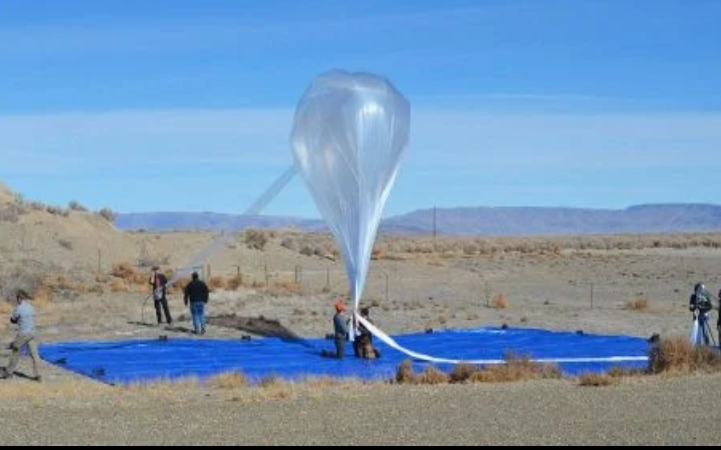ICT Cabinet Secretary in the ministry of Joe Mucheru on Wednesday shared with President Uhuru Kenyatta a panoramic view of Radat, Baringo County during the launch of the Loon internet balloons that will see mobile phone users in 14 counties access 4G network.
The internet-enabled balloons from Google’s sister firm Loon are to provide internet access to remote areas of Kenya.
It will provide 4G coverage so people can make voice and video calls, browse the web, email, text and stream videos.
Speaking during the launch, President Kenyatta who addressed locals via live WhatsApp video chat, asked them to take advantage of the improved telecommunication infrastructure to advance their social-economic activities.
“You now have a faster internet network. You can now sell your honey to the rest of the world. Take full advantage of it,” the president said.
ICT CS Joe Mucheru termed the launch as historic, adding that Kenya continues to lead the world in matters technology.
The project was announced two years ago but final sign-off from the government was officially launched in April.
It is now being fast-tracked to help improve communications during the Covid-19 pandemic.
The balloons’ 4G internet service has been tested with 35,000 customers and will initially cover a region spanning 50,000 sq km (31,000 sq miles).
Eventually, 35 solar-powered balloons will be in constant motion in the stratosphere above eastern Africa. They are launched in the US and make their way to Kenya using wind currents.
One field test of the service showed download speeds of 18.9mbps (megabits per second) and upload speeds of 4.7mbps.
Loon began as one of Google’s so-called “moonshot projects” in 2011, and in 2018, it teamed up with Telkom Kenya to provide a commercial service.
According to Loon’s chief executive Alastair Westgarth, the spread of Covid-19 has meant both are “working as fast as we can to realise service deployment”.
He added that this is the culmination of years of work and collaboration between Loon, Telkom and the government.
Telkom Kenya’s chief executive Mugo Kibati said it was “an exciting milestone for internet service provision in Africa”.
“The internet-enabled balloons will be able to offer connectivity to the many Kenyans who live in remote regions that are underserved or totally unserved, and as such remain disadvantaged,” he said.
Some critics said it would have been better in another African country because Kenya already has an estimated 39 million out of a population of 48 million people online.
Known as Project Loon, the technology was developed by Alphabet’s X, the company’s innovation lab.
Last year, Alphabet Inc’s Loon said it would deploy its system of balloons to beam high-speed Internet access with Telkom Kenya to cover rural and suburban populations, marking its first commercial deal in Africa.
It has since become Loon, a subsidiary of Alphabet, which is the parent company of Google.

In a nut shell, in Malawi on 8th July, 2020, Mulanje Residents were frightened to see this kind of Google balloon and they were forced to run away and report it to Police.




